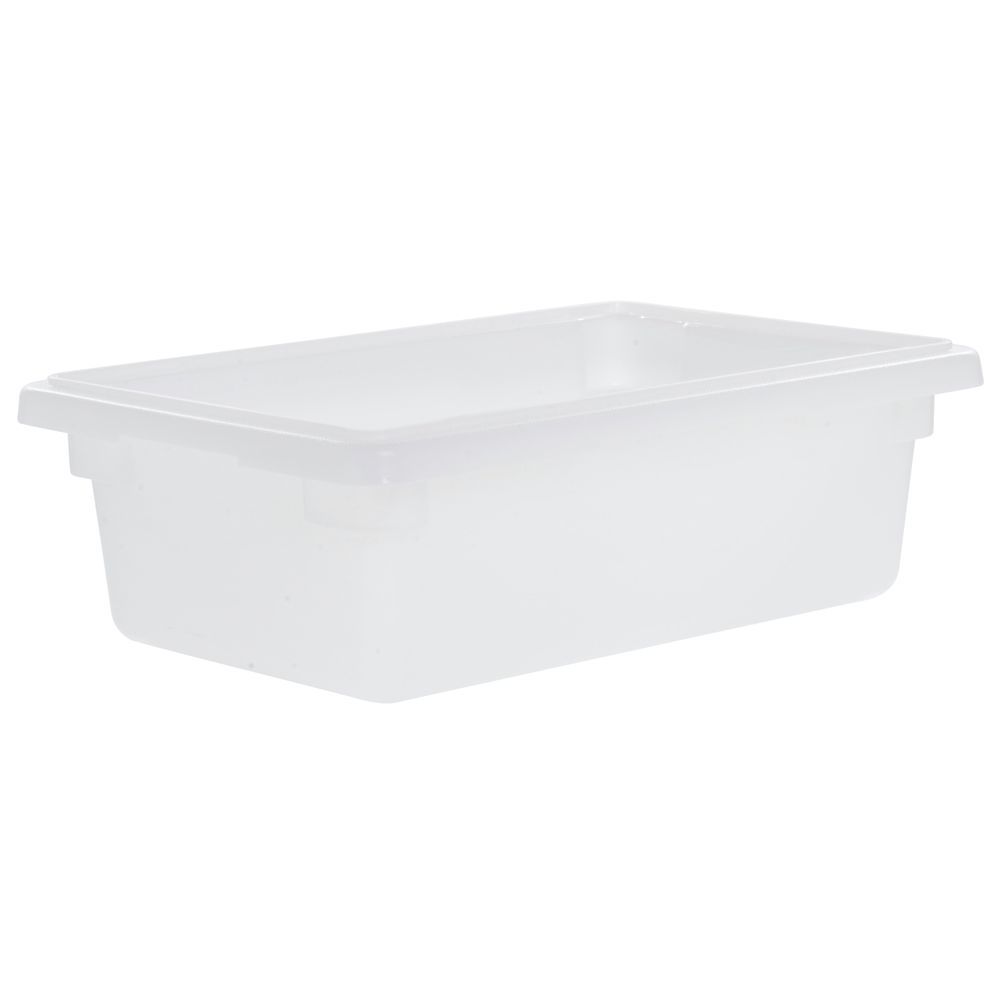Find out how plastic bulk containers can reduce costs for your operations
Wiki Article
The Duty of Mass Plastic Containers in Effective Recycling Practices and Sustainability
Mass plastic containers are important to modern recycling initiatives. Their style boosts the effectiveness of product collection and transport, adding to sustainability objectives. These containers not only optimize room but also assist in keeping track of contamination levels. However, their execution is not without obstacles. Recognizing the full range of their impact reveals an intricate connection between logistics and ecological responsibility that requires further expedition.Understanding Mass Plastic Containers
Mass plastic containers work as an important element in numerous markets, helping with the storage and transportation of goods. These containers are commonly made from robust materials such as high-density polyethylene (HDPE) or polypropylene, which offer toughness and resistance to environmental factors. Their design frequently consists of functions like stackability and modularity, permitting reliable use space during both storage and transportation.Industries such as farming, food handling, and producing often make use of mass plastic containers due to their light-weight nature and ease of handling. The containers can be found in different dimensions and arrangements, providing to the details demands of different items. Their versatility expands beyond simple capability; they can likewise be personalized with covers, manages, and identifying choices to boost use - plastic bulk containers. As an outcome, mass plastic containers play a critical duty in enhancing logistics and supply chain procedures throughout numerous industries, therefore adding to total efficiency and cost-effectiveness
Benefits of Using Bulk Plastic Containers in Recycling
When organizations prioritize recycling initiatives, the application of bulk plastic containers significantly improves the performance of the process. These containers are created to maximize space, permitting the storage space and transport of larger amounts of recyclable materials. This leads to fewer trips to reusing centers, consequently reducing gas intake and associated discharges.Additionally, mass plastic containers are long lasting and immune to numerous ecological factors, making sure that products continue to be protected throughout handling and transit. Their light-weight style even more contributes to reduce transport costs.
The uniformity of these containers assists in much better sorting and processing of recyclable products, which can boost overall recycling rates. Organizations that embrace bulk plastic containers likewise show a dedication to sustainability, positively affecting their brand picture. Eventually, these benefits not just simplify recycling techniques but also add to wider ecological goals
Exactly How Mass Plastic Containers Facilitate Product Collection
Effective product collection is greatly enhanced by the use bulk plastic containers, as they offer a efficient and organized option for gathering recyclable things. These containers are made to fit big quantities of materials, which streamlines the sorting and storage space procedure. Their stackable style maximizes room usage, making it easier for facilities to organize recyclables without clutter.On top of that, mass plastic containers are resilient and weather-resistant, permitting for outdoor placement without degradation. This durability guarantees that materials stay protected till they are collected for processing.

The harmony in shapes and size of these containers assists in standardization throughout collection factors, enabling much better monitoring of recyclable quantities. Furthermore, their transparent nature allows for simple visibility of components, aiding in the tracking of contamination degrees and guaranteeing that only proper materials are accumulated. Generally, bulk plastic containers play a critical role in improving the material collection process, thereby promoting effective reusing techniques.
Transportation Effectiveness and Environmental Impact
Transport efficiency plays a vital function in the recycling process, particularly via the optimization of lots capacity in bulk plastic containers. By optimizing the quantity of product carried, business can considerably reduce the variety of trips called for, consequently lessening their carbon impact. This technique not only improves operational efficiency but also adds to much more lasting environmental practices.
Maximizing Tons Capacity
Optimizing load capacity is commonly forgotten, it plays an essential function in enhancing transportation effectiveness and reducing ecological influence in reusing practices. By making best use of the quantity that bulk plastic containers can hold, recycling operations can minimize the number of journeys required for transportation. This not only decreases gas consumption but additionally decreases the damage on vehicles. Efficient tons administration enables centers to utilize space effectively, making certain that each transportation cycle is as productive as possible. Additionally, well-optimized tons can lead to better settlements with logistics suppliers, potentially reducing total prices. Ultimately, improving lots ability adds to a more sustainable reusing system by cultivating reliable resource use and reducing waste created during transport.Lowering Carbon Impact
As reusing procedures venture to minimize their environmental influence, decreasing have a peek at this website the carbon impact related to transportation emerges as an important goal. Mass plastic containers play a crucial role in accomplishing this aim by improving load efficiency and maximizing logistics. Their lightweight yet resilient layout permits for optimum freight room usage, reducing the number of trips required to move materials. By combining deliveries, recycling facilities can decrease gas usage and greenhouse gas exhausts. In enhancement, tactically situating recycling centers lessens transport ranges, furthermore reducing carbon outcomes. Using fuel-efficient cars and alternate power resources enhances general sustainability. By incorporating these techniques, the reusing market can substantially diminish its carbon impact, adding to an extra lasting future.Challenges in using Mass Plastic Containers

Contamination Concerns
Contamination problems stand for a considerable challenge in the effective usage of mass plastic containers within recycling methods. These containers frequently collect deposits from previous materials, resulting in mixed materials that can hinder the reusing procedure. Pollutants such as food waste, chemicals, or non-recyclable materials can jeopardize the honesty of the entire set, causing boosted disposal prices and decreased reusing prices. In addition, inappropriate cleansing or sorting can aggravate these problems, making it difficult for reusing centers to refine products efficiently. The presence of impurities not only affects the high quality of recycled items but also undermines the total sustainability efforts aimed at lowering plastic waste. Addressing these contamination difficulties is vital for enhancing the efficiency of bulk plastic container recycling.Recycling Framework Limitations
Inadequacy in reusing facilities positions considerable obstacles for the reliable administration of bulk plastic containers. Several recycling centers do not have the capability to process large volumes of these containers effectively, leading to raised hold-ups and prices. In addition, inadequate arranging innovations frequently cause contamination, as mass containers might be blended with various other products, complicating the reusing procedure. Minimal transport alternatives additionally prevent the activity of bulk plastic containers to appropriate recycling facilities, bring about raised land fill waste. Additionally, a lack of standardized protocols for mass container recycling produces complication amongst businesses and consumers, even more making complex initiatives to advertise sustainability. Addressing these framework restrictions is important to enhance recycling methods and maximize the capacity of mass plastic containers in a round economic situation.Best Practices for Applying Bulk Plastic Containers
They ought to prioritize a tactical strategy that enhances efficiency and lowers contamination risks when organizations take into consideration implementing mass plastic containers in their recycling practices. Picking the appropriate get more container size and type is crucial to accommodate the volume of products being processed. Organizations should additionally develop clear labeling and signs to assist users on correct disposal methods, lessening complication and errors. Normal training sessions for team can further enhance these techniques, guaranteeing everyone recognizes their functions in keeping reusing integrity.
In addition, organizations must apply a regular maintenance timetable to check and clean containers, preventing the buildup of contaminants. Partnering with regional reusing facilities can additionally streamline the collection process, making certain that products are successfully processed. Ultimately, companies ought to keep track of and review their reusing metrics, using this data to improve techniques gradually and promote continuous renovation in their sustainability initiatives.
The Future of Mass Plastic Containers in Sustainable Practices
As companies increasingly prioritize sustainability, the duty of bulk plastic containers in reusing techniques is established to progress significantly. Advancements in products science are leading to the growth of recyclable and eco-friendly alternatives, enhancing the environmental advantages of mass plastic containers. In enhancement, the execution of closed-loop systems will enable much easier collection and repurposing of these containers, reducing waste and source consumption.Technological innovations, such as wise radar, will certainly enable business to check the lifecycle of mass containers, improving effectiveness in recycling processes. As customer demand for sustainable practices grows, services will likely adopt mass plastic containers developed for reuse and lasting value. Additionally, cooperation between sectors and federal governments will foster the facility of standardized recycling procedures, making certain that mass containers are efficiently integrated into broader sustainability efforts. Generally, the future of mass plastic containers appears encouraging, with significant potential for adding to a circular economy.
Regularly Asked Questions
Exactly How Are Mass Plastic Containers Made and What Materials Are Made use of?
Bulk plastic containers are typically made from high-density polyethylene (HDPE) or polypropylene (PP) These products are processed with shot molding or impact molding strategies, resulting in sturdy, light-weight containers suitable for different storage space and transportation demands.
Can Bulk Plastic Containers Be Reused Multiple Times Before Recycling?
Yes, bulk plastic containers can be recycled several times before reusing. Their longevity and design enable duplicated use in different applications, promoting sustainability and source performance while lowering the demand for brand-new containers.
What Certifications Exist for Bulk Plastic Containers in Recycling?
Various accreditations for mass plastic containers consist of the Recycling Partnership's qualification, the Cradle to Cradle Licensed ™ requirement, and get redirected here the Sustainable Packaging Coalition's standards, making sure containers fulfill particular environmental and recyclability criteria for efficient recycling.Exactly How Do Mass Plastic Containers Contrast to Various Other Recycling Storage Space Options?
Mass plastic containers use greater toughness and capacity compared to various other reusing storage options, lowering the threat of contamination and facilitating efficient transportation. Their design supports far better organization, improving total effectiveness in reusing operations.What Is the Lifespan of a Bulk Plastic Container in Recycling Processes?
The lifespan of a bulk plastic container in reusing procedures usually varies from 5 to 10 years, relying on usage, worldly quality, and environmental conditions, permitting multiple cycles of usage prior to ultimate disposal or recycling.When companies focus on recycling efforts, the utilization of mass plastic containers considerably boosts the effectiveness of the procedure. Transportation performance plays a crucial role in the reusing process, specifically via the optimization of lots ability in mass plastic containers. The usage of bulk plastic containers in recycling practices faces substantial difficulties, specifically worrying contamination problems and restrictions within reusing framework. Contamination concerns stand for a significant obstacle in the reliable use of mass plastic containers within reusing methods. When organizations take into consideration implementing bulk plastic containers in their recycling practices, they must prioritize a strategic technique that improves efficiency and decreases contamination risks.
Report this wiki page